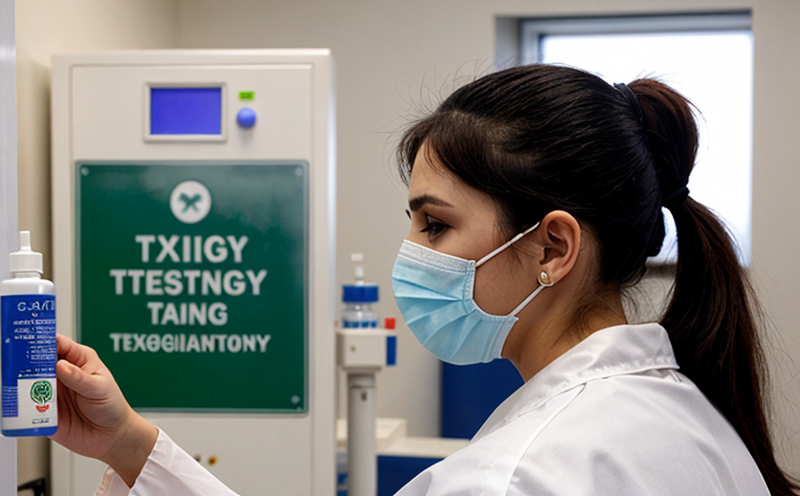Dependence Potential Pharmacology Testing
The evaluation of dependence potential is a critical aspect in pharmaceutical development. This service assesses the likelihood that a drug candidate will lead to compulsive use and craving, which are key indicators of addictive properties. Understanding these characteristics early in the development process allows for informed decisions regarding further clinical trials, regulatory approval, and post-market surveillance.
Dependence potential is evaluated through various pharmacology tests designed to simulate real-world scenarios where a patient might be exposed to the drug. These tests are aimed at identifying any signs of abuse liability or dependence that could pose risks to public health. The service integrates cutting-edge technologies and methodologies, ensuring robust and reliable data for your product.
The first step in this testing involves a thorough review of preclinical studies and literature to establish a baseline understanding of the compound's pharmacological profile. This includes examining the drug's mechanism of action, its metabolic pathways, and any known or suspected side effects. Based on these insights, we develop a customized protocol that aligns with regulatory guidelines.
One critical component is the in vivo testing using animal models designed to mimic human physiology as closely as possible. These tests evaluate how the drug affects brain chemistry, particularly focusing on neurotransmitter systems like dopamine and serotonin. The second phase involves human studies where volunteers are monitored under controlled conditions to observe behavioral changes indicative of dependence.
Instrumentation plays a vital role in these evaluations. We utilize advanced analytical tools such as high-performance liquid chromatography (HPLC) for metabolite profiling, gas chromatography-mass spectrometry (GC-MS) for identifying active components, and positron emission tomography (PET) scanning to visualize brain activity changes.
The data generated from these tests are meticulously analyzed using statistical software packages. Our team of experienced pharmacologists interprets the results to provide a comprehensive report that includes recommendations on potential modifications needed before proceeding with further stages of development or approval processes.
Our service ensures compliance with international standards including ICH Q3D, which sets guidelines for ensuring drug quality by controlling impurities and related substances. Additionally, we adhere strictly to Good Laboratory Practices (GLP) as outlined in FDA regulations. This commitment guarantees that our findings are credible and acceptable across different regulatory bodies worldwide.
By offering Dependence Potential Pharmacology Testing services, we aim not only to meet but exceed the expectations set by industry standards while providing valuable insights into the safety profile of your drug candidate. Our expertise ensures that you make well-informed decisions throughout the entire development lifecycle.
Scope and Methodology
| Aspect | Description |
|---|---|
| Animal Models | Various rodent species are used to assess behavioral responses, including locomotor activity, conditioned place preference tests, etc. |
| Pharmacokinetics | Assessment of drug absorption, distribution, metabolism, and excretion using HPLC and GC-MS techniques. |
| Neurochemistry | Evaluation of neurotransmitter levels in brain regions relevant to reward processing via PET scans. |
| Behavioral Testing | Observation of changes in behavior such as increased activity, withdrawal symptoms upon cessation. |
| Aspect | Description |
|---|---|
| Human Studies | Controlled trials involving volunteers to observe real-world effects of the drug on individuals. |
| Data Analysis | Statistical evaluation using specialized software packages to interpret complex experimental data accurately. |
| Regulatory Compliance | Strict adherence to GLP and ICH Q3D standards ensuring reliability and acceptability by global regulatory authorities. |
| Reporting | Detailed reports summarizing all findings along with actionable recommendations for subsequent stages of development. |
Benefits
Evaluating dependence potential early in the drug development process provides several significant advantages. Firstly, it helps identify potential risks associated with a compound’s addictive properties at an earlier stage, allowing for necessary modifications or adjustments before extensive investment has been made into later stages of clinical trials.
Secondly, this service ensures that your product meets stringent regulatory requirements both domestically and internationally. By demonstrating adherence to established guidelines like ICH Q3D and GLP, you can enhance credibility with regulators and stakeholders alike.
The insights gained from dependence potential testing also contribute positively towards public health by reducing the likelihood of adverse events resulting from inappropriate use or abuse of your pharmaceutical product once it reaches the market. This proactive approach fosters trust among consumers who rely on safe and effective medications.
Moreover, successful completion of these tests can significantly streamline the approval process, potentially saving time and resources that would otherwise be spent addressing issues discovered later in development stages.
Customer Impact and Satisfaction
Our clients appreciate our comprehensive approach to Dependence Potential Pharmacology Testing. By providing detailed reports that include actionable recommendations, we enable our customers to make well-informed strategic decisions regarding their product development plans.
The reliability of our testing results enhances customer confidence in the quality and safety of their pharmaceutical products. This trust translates into improved market acceptance and ultimately contributes to increased sales and profitability.
Customers also benefit from our commitment to regulatory compliance, which minimizes potential delays or rejections during the approval process. Early identification of any issues ensures smoother interactions with regulatory agencies, thereby accelerating product launch timelines.
We strive to exceed expectations through continuous improvement in our testing methodologies and adherence to evolving industry standards. Our team's expertise guarantees that you receive accurate, relevant information tailored specifically for your unique needs.





